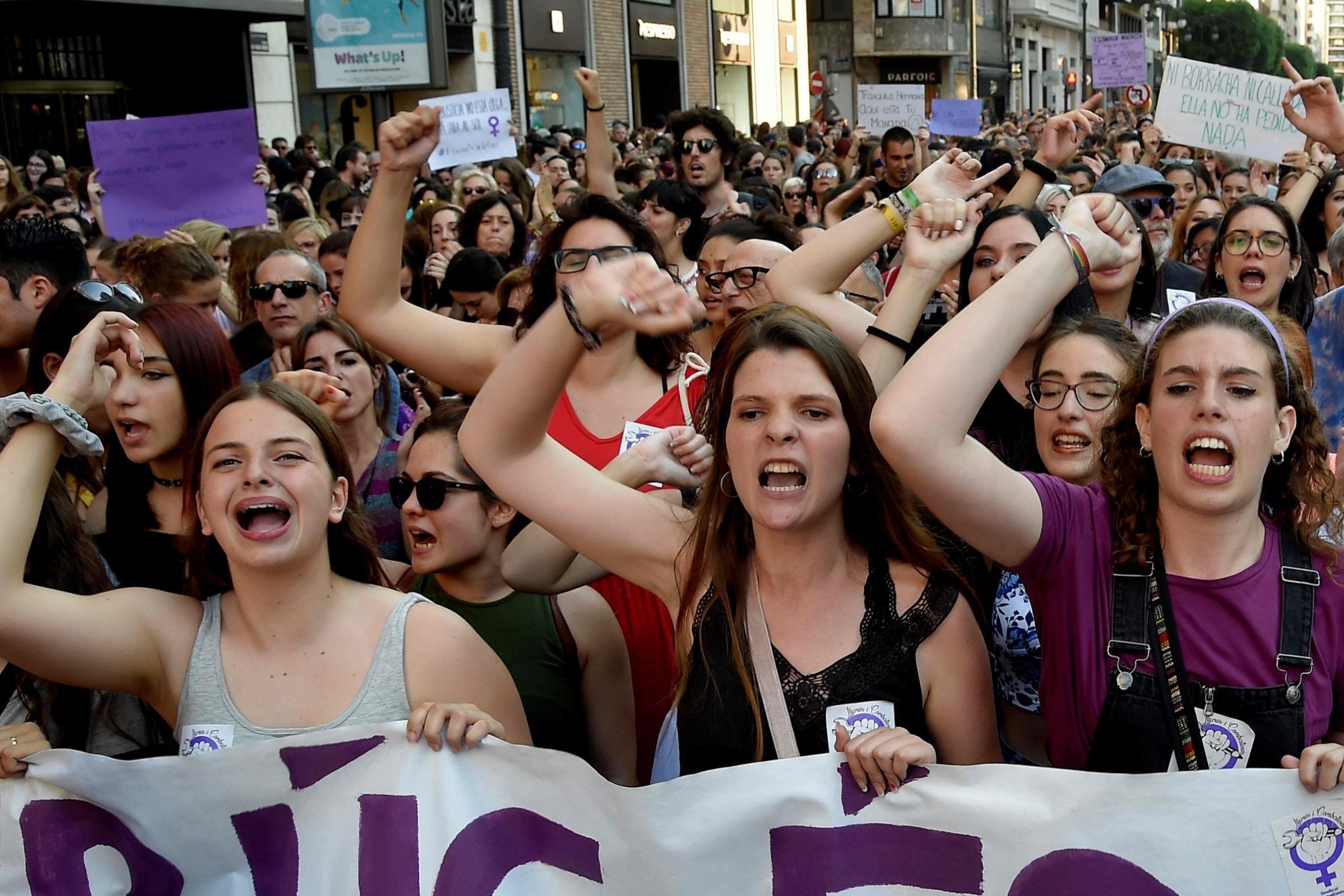Why the running of the bulls in Pamplona is a feminist issue
City officials have launched an app to combat sexual assaults at the annual festival

Today, thousands of tourists and Spanish locals will take part in the famous Pamplona bull run - but the traditional festival is steeped in controversy.
Staged every year from 6 to 14 July, the event, also known as San Fermin, sees participants run an 875-metre route alongside six charging bulls through the streets of Navarre for a race that typically lasts no more than three minutes and concludes at the city’s bullpen.
Attracting criticism from animal rights activists for years - the bulls are slain by a matador at the finish line - the annual event has also been criticised by women’s rights groups since 2016, when an 18-year-old woman was raped by five men after attending the festival.
The “Wolf Pack” case, as it came to be known due to the name of a WhatsApp group used by the men in which they proudly shared footage of the incident, sparked major protests in several Spanish cities after the men were sentenced to nine years in jail for “sexual abuse” rather than rape.
According to the judges, there was no evidence that the victim had experienced "intimidation or violence", hence why the men were charged with assault rather than the more serious offence of rape, a charge for which the aforementioned factors are necessary in order to warrant a rape charge under Spain’s criminal code.
The men claimed that the victim had consented and, after appealing their case, were released on a bail of €6,000, a ruling which was met with a wave of criticism from Spanish political leaders and women’s rights activists.
Demonstrators took to the streets of Pamplona, Granada, Seville and Malaga to contest the ruling, which was made last month, chanting “We women do believe you” and “No is no. Justice!”
Crowds of women protested in Pamplona on Wednesday, wearing all-black to raise awareness of the controversial ruling.
Local feminist groups, including the Navarra Platform for Women Against Sexual Violence, have been campaigning to make the annual festival, which is mostly attended by men, free from sexual violence for years.
This year, the groups have encouraged attendees to wear all-black ensembles and purple neckerchiefs, instead of the traditional costume of white outfits and red scarves, to the opening ceremony in protest of sexual violence, according to El Pais.
Fuelled by alcohol and a lawless spirit, incidents of sexual assault at the running of the bulls have steadily grown over the last 10 years, with 22 reported last year in comparison to two in 2008, according to a study by the Public University of Navarra.
While many have taken to boycotting this year’s festival in light of the Wolf Pack ruling, city officials are encouraging women to attend and are launching various safety measure to reassure those who have concerns.
For example, city councilwoman for security and community Itziar Gomez has launched a campaign to encourage women to attend, called Pamplona - free from sexual harassment.
“Faced with calls not to come to the festival, I would make a call to women that Pamplona is a city whose institutions and society have said they will not allow assaults," Gomez told Reuters.
"This is a safe place with social, institutional and police support," she added.
City officials have also launched a free smartphone app, AgreStop, to make it easier for victims to report incidents of sexual assault at the event.
Users can choose from one of three options (“I’m suffering an assault”, “report an assault” and “keep me company”) which will send an immediate distress signal to local police along with details of their location.
“Now more than ever we women have to fill the streets, fill the 'fiestas' and fill the night because you will have that assurance that there are women in the street with you," said Laura Berro, former city councilwoman for equality.
Subscribe to Independent Premium to bookmark this article
Want to bookmark your favourite articles and stories to read or reference later? Start your Independent Premium subscription today.

Join our commenting forum
Join thought-provoking conversations, follow other Independent readers and see their replies